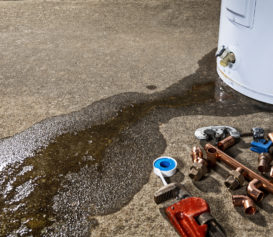We’re officially in the heart of wintertime. And for management teams across the country, that means more tenant complaints, and more time spent responding to them.
For example, a small 120-unit complex in the northeast is dealing with a steep jump in tenant outreach, all centered on that wonderful seasonal happening: snow. And in just one day, the tiny maintenance team has had to respond to several calls from residents about plowed-in vehicles, visitor spots that weren’t plowed yet, not enough salt on the sidewalks, too much salt, and more.
Dealing with this sheer volume of calls is exhausting in itself. But having to respond to each one without a clear plan or process in place? A recipe for disaster – for your tenants and your team.
The solution? Operationalize your processes to make winter work better for your team – and more positive for your residents.
Why is operationalizing so important?
Stuff happens – you’re dealing with humans, after all. But whatever the “stuff,” and whenever it happens, knowing your plan in advance gives you a better chance of managing a successful response. You’re much more likely to have a satisfactory result for everyone involved if you have a blueprint for how to handle the situation (instead of just reacting on the fly).
And successful responses don’t just lead to an increase of serotonin. Standardizing the way you handle tenant-focused work – everything from basic interactions to super-complex scenarios – can have a ton of positive benefits across your organization. Here are just a few:
- Decrease initial response times for tenant complaints and concerns
- Reduce total open times for tenant-centric issues
- Minimize time spent on intermittent tenant surprises
…which can result in hugely positive outcomes:
- Increase retention rates via high tenant satisfaction
- Increase staff retention rates and satisfaction levels
The link is clear – the better the relationship between your maintenance team and your residents, the better your renewals and retentions. That’s why it’s so important to have the right people on the job, and ensure they have the right tools to get the job done.
It starts with your staff
When you’re growing your team, it’s worth focusing on folks with a customer service mindset. Being a maintenance rock star isn’t just about technical know-how – it’s about managing a community of people alongside a major network of assets, and balancing the needs of both.
Hiring great people is an important first step – but keeping them engaged with the work they’re doing is critical for ongoing success. Staffers need to be equipped to deal with an avalanche of calls – or an avalanche of residents. Otherwise, they may seek out other teams that have more structure, support, and resources.
And that’s exactly what you don’t want. High turnover can lead to a loss of institutional knowledge and a time spent on recruiting instead of improving operations and processes. The result? Unnecessary delays and frustrated residents.
So how do you prevent that? Beyond the table-stakes basics of company culture and personal needs (benefits, salary, etc.), you’ll want to ensure your team is equipped to handle anything that comes their way. That means giving them the framework to address tenant issues as they come in, and the tools to manage them effectively. For example, building out a call center or centralized location for tenant inquiries can help your ground crew focus on what they need to do instead of deal with distractions. Or providing them with a mobile operations platform that allow them to track and reprioritize work throughout the day gives them needed flexibility (while still being accountable to you, your plan, and your residents).
While it starts with your people, even the best staffers need great processes to keep it going. Next up, we’ll talk about enabling your staff with a great operations plan.
Building out your operations for success
You don’t have time to rewrite your entire game plan for every response – especially when things are busy. So building out your playbook in advance can speed up your response times when the time comes.
Laying out processes in advance doesn’t mean your team can’t be agile. In fact, being agile means you can adjust your plans easily because they’re good, solid plans. Your team will know what options they have for any scenario, and what their next steps can (and should) be.
Think about all the tenant-related touchpoints at your organization, and how you can plan ahead for them. In the case of our winter weather complex, here are just some examples of pre-planning the team can operationalize to improve future snowfalls:
- Can we minimize the number of resident calls by sending a newsletter/email on Dec 1 outlining snow storm responses (plows, salting, electrical emergency, etc.) and timing?
- Can we ensure residents always contact the main office/call center instead of reaching out to the maintenance team directly? (Why is this important? Juggling calls delays the actual work that needs to be done)
- Can we provide realistic time estimates to tenants in advance so they can better plan their days/communicate needs with us?
- Are there any units that have special needs (the elderly, differently abled, emergency responders) that require additional or early plowing and help?
You can even survey your residents to see what they’d prefer in terms of communication frequency or priorities.
What about regions without snow? Or with infrequent weather events? Substitute localized emergency response scenarios (hurricane response, for example) using these same planning steps. And for places where winter storms are rare, it’s even more important to have these plans laid out and ready to execute. Ensuring your residents are informed will help keep them safe, and your team ready to focus on the tasks at hand.
With a little advanced prep, you can ensure all the people across all your properties feel the benefits of a well-executed operations plan.




